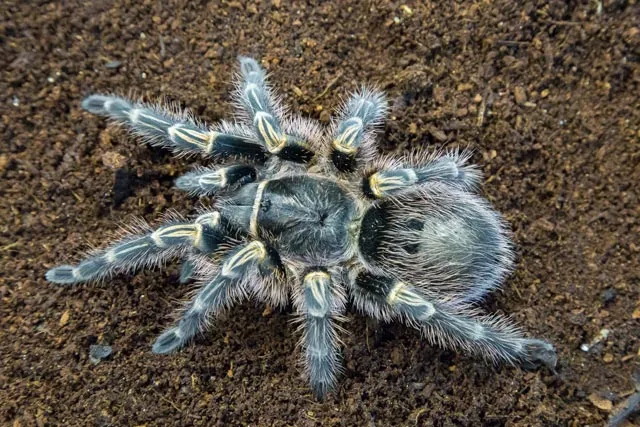Tarantula Toronto Facts
Toronto, a bustling metropolis, might not immediately bring tarantulas to mind. However, the presence of these fascinating creatures, particularly in the context of responsible pet ownership and the local ecosystem, provides an intriguing topic. This guide delves into the world of tarantulas in Toronto, exploring facts, habitats, and considerations for enthusiasts and potential owners alike. We will navigate through the common species, their behaviors, and where they might be found, all while emphasizing the importance of responsible ownership and care. Prepare to be enlightened about the often-misunderstood world of tarantulas in the vibrant city of Toronto.
What Makes Toronto Tarantulas Unique?
Toronto’s unique climate and urban environment set the stage for specific tarantula-related scenarios. While native tarantulas are not typically found in Toronto’s wild, the city is home to a community of tarantula enthusiasts and pet owners. This creates a niche environment where knowledge, care practices, and legal considerations are particularly relevant. Toronto’s diverse population and strong pet-owning culture play a significant role in the types of tarantulas people choose to keep and the resources available for their care. Understanding these nuances provides a clearer picture of the tarantula presence in Toronto.
Climate and Habitat
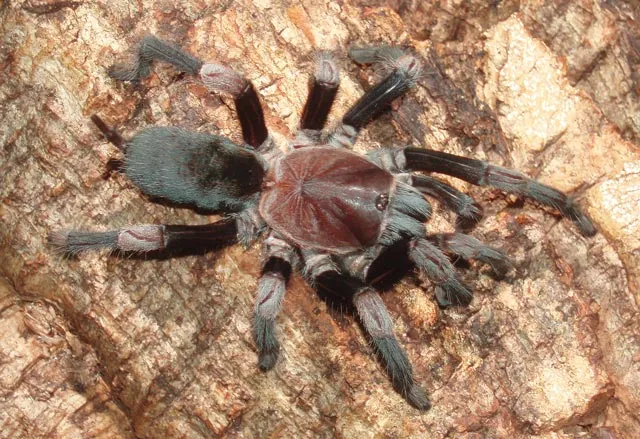
The climate of Toronto is a crucial factor to consider when discussing tarantulas. Toronto experiences four distinct seasons, with cold winters and warm, humid summers. This is not the natural habitat for tarantulas. Therefore, any tarantula living in Toronto is dependent on a controlled environment created by its owner. Mimicking the tarantula’s natural habitat is essential, which usually involves maintaining a specific temperature and humidity level, requiring the use of heating pads, appropriate substrate, and careful monitoring. The urban environment also means that natural habitats are scarce, making indoor setups the norm. This necessitates knowledge of appropriate enclosure sizes, substrate types, and environmental control to ensure the tarantula’s well-being (tarantula-toronto-climate-habitat.webp).
The Most Common Tarantula Species in Toronto
Within Toronto’s pet community, certain tarantula species are more commonly kept due to their temperament, care requirements, and availability. These include species known for being relatively docile and easy to care for, making them suitable for beginner hobbyists. Popular choices often include those with a lower likelihood of causing significant harm to humans. Availability through local pet stores and breeders also plays a role in which species become popular. Choosing the right species involves careful consideration of the owner’s experience level, space availability, and commitment to providing proper care.
The Chilean Rose Tarantula
The Chilean Rose Tarantula (Grammostola rosea) is one of the most popular choices among Toronto tarantula owners. Known for its relatively docile nature and beautiful coloration, this species is considered a good option for beginners. Its care requirements are not overly demanding, which adds to its appeal. The Chilean Rose Tarantula typically thrives in a terrestrial setup with a substrate that retains moisture, such as a mixture of coconut fiber and peat moss. Providing a temperature gradient and appropriate humidity levels are critical for their well-being. Regularly feeding them appropriately sized insects is also a key part of their care. This species is known for its longevity, often living for over 20 years, which is a consideration for anyone considering this tarantula as a pet (chilean-rose-tarantula.webp).
The Curly Hair Tarantula
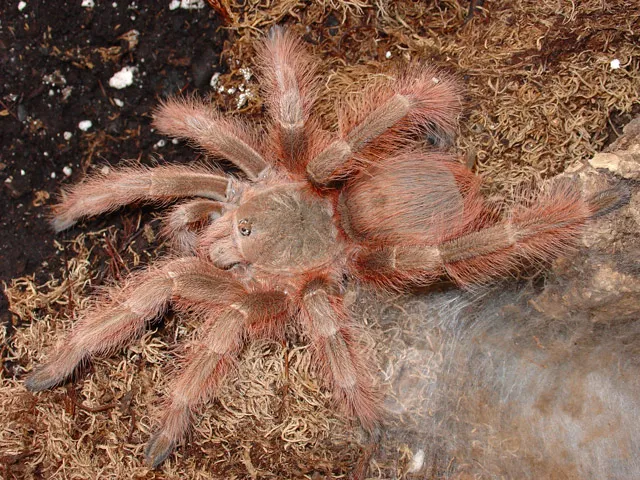
The Curly Hair Tarantula (Tliltocatl albopilosus) is another favorite among Toronto tarantula enthusiasts. This species is known for its calm demeanor and distinctive appearance, with its body covered in curly, golden hairs. They are relatively hardy, making them a good choice for beginners. They prefer a terrestrial setup with a substrate that can hold moisture. Maintaining a temperature of around 75-85 degrees Fahrenheit and a moderate humidity level is ideal for their health. The Curly Hair Tarantula is not particularly picky about food, readily accepting a variety of insects. Proper care and handling are necessary to ensure both the owner’s and the tarantula’s safety (curly-hair-tarantula.webp).
Toronto Tarantula Behaviour and Characteristics
Understanding tarantula behavior is essential for any Toronto owner. Tarantulas, especially those in captivity, have specific needs and demonstrate particular behaviors that should be observed. For instance, the burrowing behavior in some species is critical, and providing a suitable substrate is essential. Tarantulas molt, a process where they shed their exoskeleton to grow, and it is crucial not to disturb them during this time. The tarantula’s temperament can vary, with some species being more docile than others, while some may display defensive behaviors like flicking urticating hairs. This highlights the importance of responsible handling practices. Recognizing the signs of stress, such as loss of appetite or erratic movements, is critical for the tarantula’s health.
Feeding Habits
Tarantulas in Toronto, like anywhere else, are carnivores. Their diet primarily consists of live insects, such as crickets, mealworms, and roaches. The frequency of feeding depends on the age and size of the tarantula, as well as the species. Younger tarantulas require more frequent feedings compared to adults. Providing a varied diet is beneficial to ensure that the tarantula gets all the necessary nutrients. It is critical to ensure that the insects are appropriately sized for the tarantula; the prey should typically be no larger than the tarantula’s abdomen. Uneaten food should be removed promptly to prevent mold and other health risks (tarantula-feeding.webp).
Lifespan and Growth
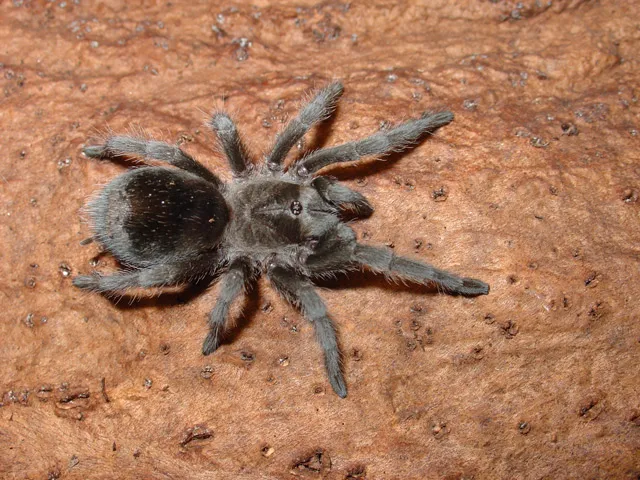
The lifespan of a tarantula varies significantly depending on the species, with some females living for over 20 years in captivity. Male tarantulas generally have a shorter lifespan than females. Growth occurs through molting, a process where the tarantula sheds its exoskeleton to accommodate its growing body. The frequency of molting decreases as the tarantula matures. Factors such as nutrition, temperature, and humidity play a vital role in a tarantula’s growth and longevity. Careful monitoring of the tarantula’s health and well-being will help ensure a long and healthy life.
Where to Find Tarantulas in Toronto?
Since tarantulas are not native to Toronto’s wild, you won’t find them roaming the city’s parks and green spaces. Instead, the presence of tarantulas in Toronto is primarily within the confines of pet ownership. This highlights the significance of responsible ownership and careful management to prevent any potential escapes or unintended consequences. The focus, therefore, shifts to where one can acquire and learn about tarantulas in Toronto, which mainly involves reputable pet stores and breeders.
Parks and Conservation Areas
While tarantulas are not typically found in Toronto’s parks or conservation areas, these spaces provide essential ecosystem services. They offer habitats for native species and contribute to the overall biodiversity of the city. Understanding the role of these green spaces is crucial when discussing the introduction of non-native species. It’s essential to ensure that any pets do not pose a threat to the local environment. Moreover, respecting the natural environment of these areas involves appreciating the species that thrive there and taking measures to protect their habitats.
Local Pet Stores and Breeders
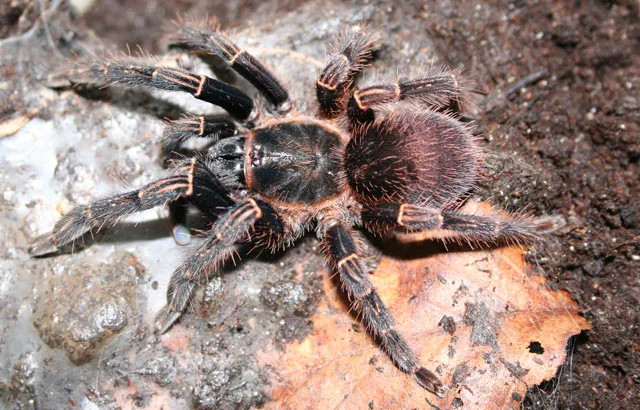
Local pet stores and specialized breeders are the main sources for obtaining tarantulas in Toronto (tarantula-local-stores.webp). These businesses offer a range of species, along with the necessary supplies such as enclosures, substrates, and food. When sourcing a tarantula, it is critical to choose reputable stores or breeders that prioritize the health and well-being of the animals. Look for establishments that provide accurate information about the species, care requirements, and legal considerations. Responsible sellers will be willing to answer questions and provide advice on proper ownership practices. Furthermore, they should adhere to ethical practices, such as humane handling and providing the correct environment for the tarantulas in their care.
Toronto Tarantula Legal Considerations and Regulations
The legal aspects of owning a tarantula in Toronto, and Canada in general, are important for prospective owners to understand. These regulations are in place to ensure both animal welfare and public safety. Understanding the requirements can help prevent legal issues and ensure the proper care of the tarantula. It is essential to research local and provincial laws before acquiring a tarantula to ensure compliance.
Permits and Ownership
While specific permits for owning tarantulas in Toronto may not always be required, regulations can vary. Some municipalities or provinces may have specific rules regarding the ownership of exotic animals. It is the responsibility of the owner to be aware of and adhere to all applicable laws. This includes regulations regarding the transportation, sale, and housing of tarantulas. Failure to comply with these legal requirements can lead to fines or other penalties, as well as the potential seizure of the animal. Always verify with local authorities for any current rules.
Responsible Tarantula Ownership and Care
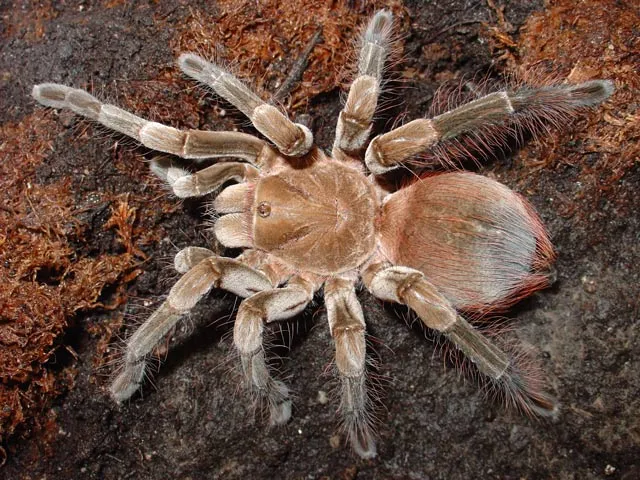
Responsible tarantula ownership is not just a matter of legal compliance; it is about providing the best possible care for the animal. This includes ensuring they have a suitable habitat, appropriate diet, and necessary environmental conditions (responsible-tarantula-ownership.webp). It also involves recognizing the tarantula’s behavioral patterns and acting in a way that ensures its well-being. Prioritizing health, which means regular vet checkups, and being aware of any signs of illness or stress, is key. Moreover, responsible ownership involves the ethical sourcing of tarantulas from reputable breeders or stores and avoiding supporting practices that may harm the species.
In summary, owning a tarantula in Toronto is a rewarding experience that requires a good understanding of the species and a commitment to responsible care. From the unique urban environment to the climate considerations and the legal regulations, owning a tarantula involves various considerations. Knowing the common species, their behaviors, and how to meet their needs is important. Proper research, ethical sourcing, and compliance with the law are all essential for any Toronto resident looking to welcome a tarantula into their home.
